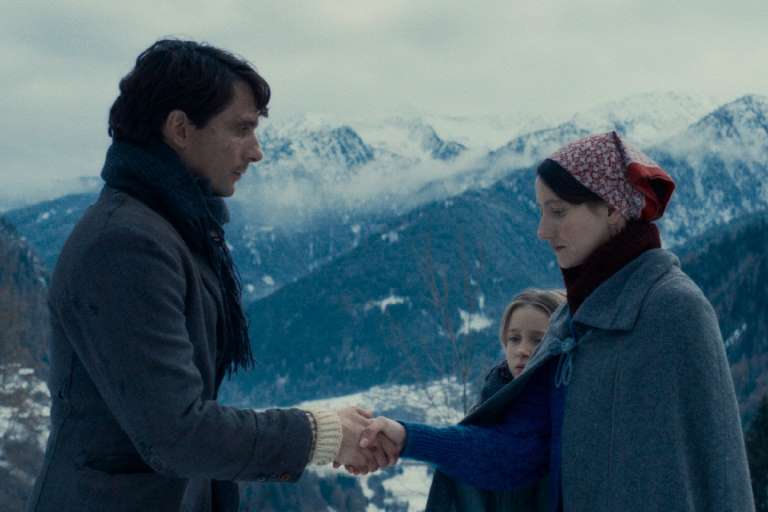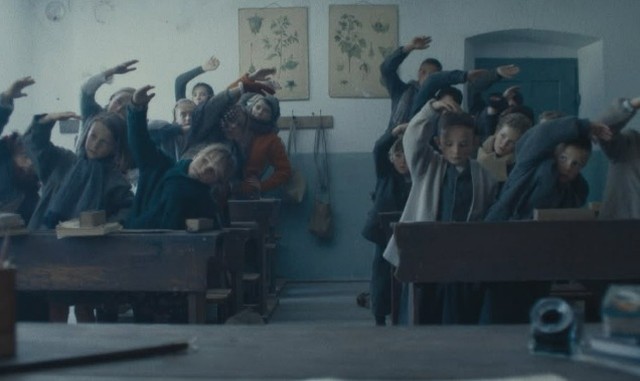Vermiglio
15When you think of Italy, you probably think of the heat that ripples through the likes of Rome and Milan, especially during the summer.
But it can get cold in Italy, especially in the north in winter, where it can be covered in snow, making it a great destination for skiers.
Showing the North of Italy in its snow-covered best is this period drama, set in the small remote village of Vermiglio.

I hope you enjoy my cabbage.
It’s 1944, and many of the young men of Vermiglio are off fighting the war. Still there is Cesare Grazadei (Tommaso Ragno), the village’s local teacher, educating its young, with many of his pupils his own children, with another on the way.
The village then sees the arrival of Pietro (Giuseppe De Domenico), a young man a long way from his home of Sicily, who has deserted from his duties, seeking sanctuary there.
His arrival sparks the interest of Cesare’s eldest daughter Lucia (Martina Scrinzi), especially as the village is bereft of young men due to the war.
It’s the start of a relationship that doesn’t meet with everyone’s approval, which develops in a way that no one could see coming, especially Lucia.

You are trees, bend with the wind...
This is the fourth film by Italian director Maura Delporo and only her second work of fiction, after her first two being documentaries. And you can tell her passion for them in her work here, which is more of a social study of a family more than anything.
It’s a slow, pondering look at a patriarchal figure, not only of his family, but that of the children of the village, who he is also fairly distant with. The scenes of him in the classroom feel very much like a fly on the wall documentary, putting his class through their paces.
Delporo takes her time, using the camera to soak up the picturesque locale, with its snow-peaked mountains and trees, literally documenting her narrative.
It certainly has a charm to it all, but being that it is a fictional film, the pacing of its narrative may just be too plodding for some.
Delporo, who also wrote the script, does make up for it as such, with an intriguing ending that has a sense of the soap opera about it, but even then delivered in a laconic visual style, that certainly helps put charming Vermiglio on the cinematic map at least.
